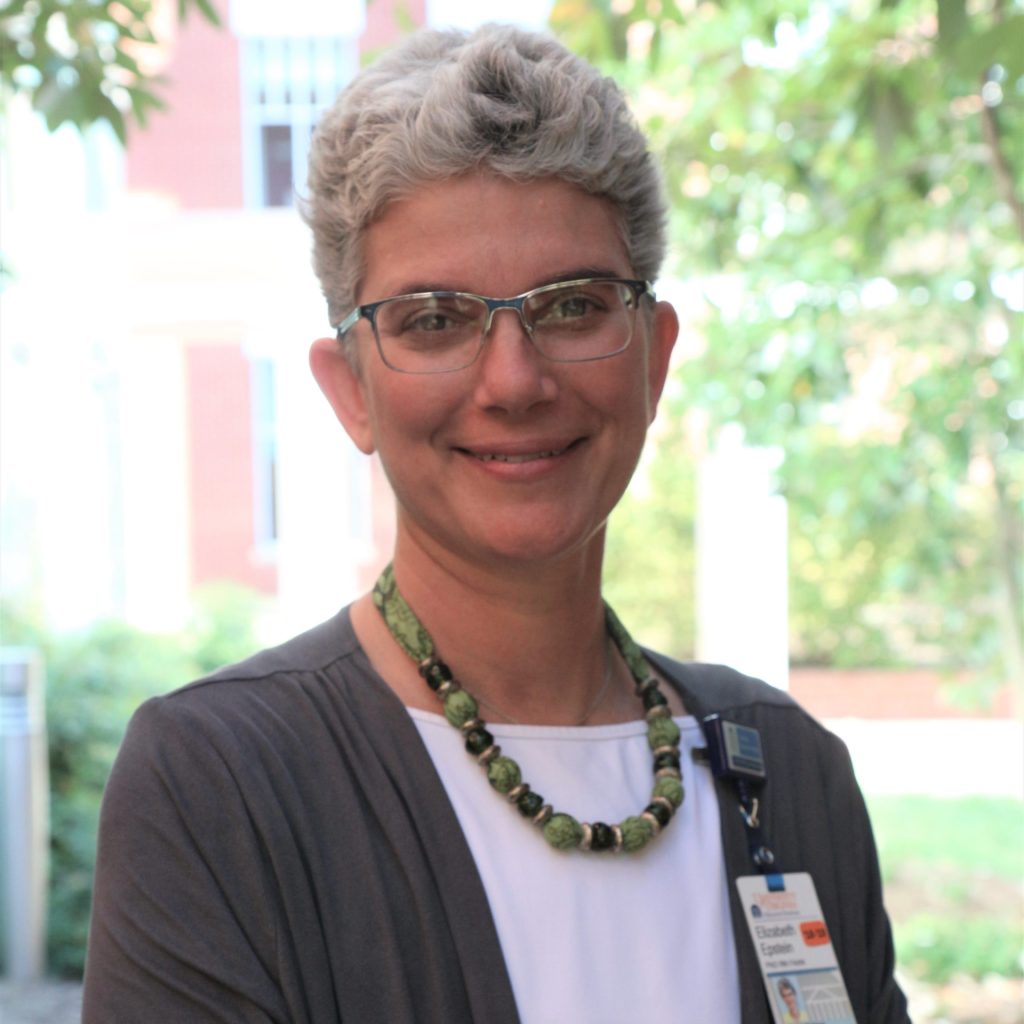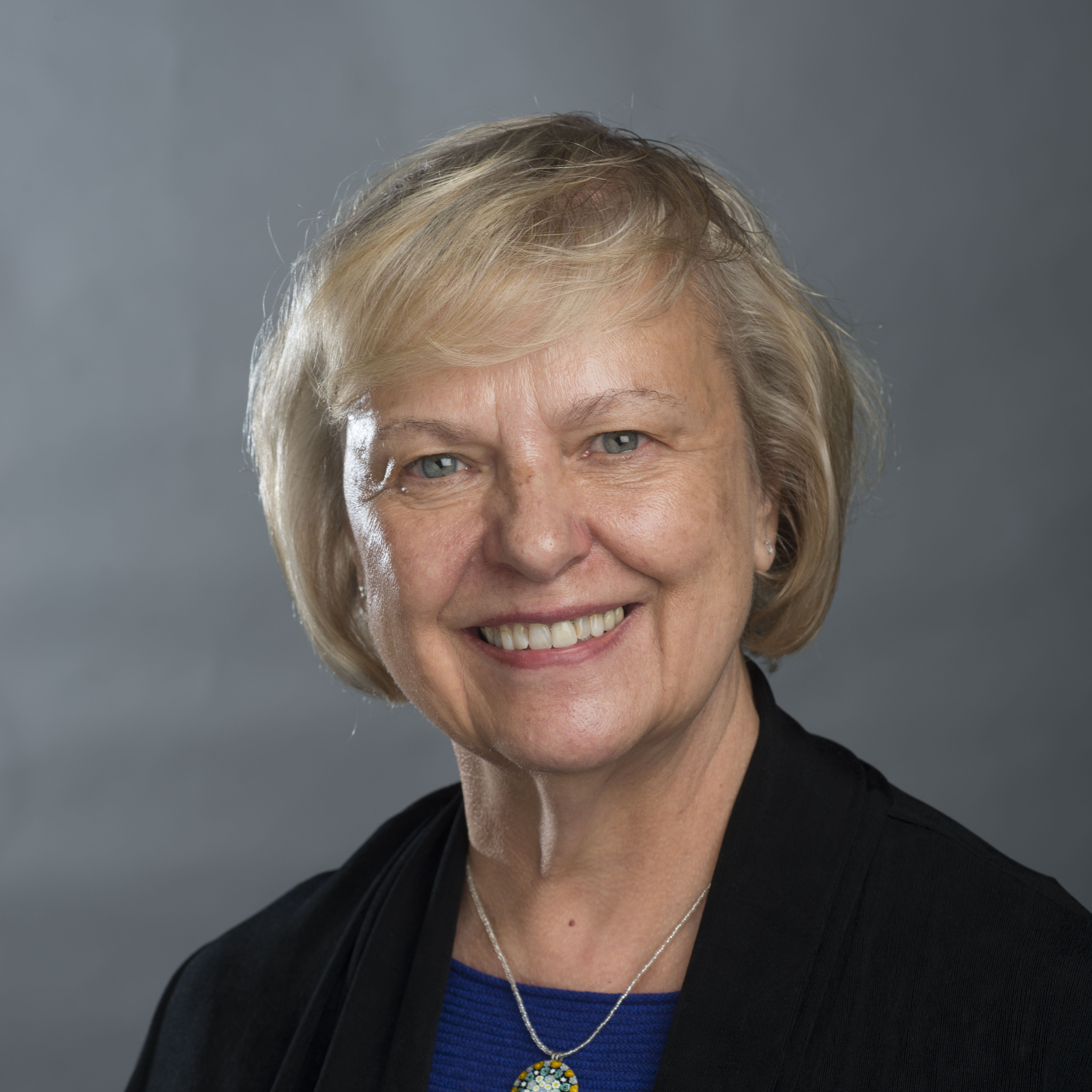Speaker Spotlight Elaine C. Meyer, PhD, RN, MBE, FSSH
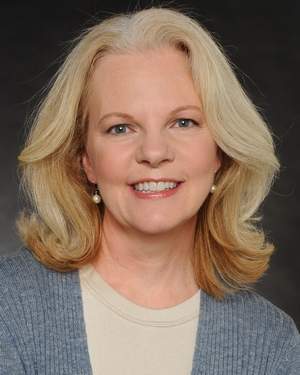
Dr. Meyer is a clinical psychologist at Boston Children’s Hospital, nurse, and bioethicist. She is faculty at the Center for Bioethics and Associate Professor of Psychology at Harvard Medical School. She is a founding member of the International PERCS Collaborative (Program to Enhance Relational and Communication Skills) that has partners in Italy, Australia, Germany, and Argentina. Dr. Meyer is a thought leader and publishes widely on a range of timely professional issues such as pediatric critical care, clinicians’ emotional engagement and moral distress, virtues and interprofessional teamwork, simulation-based education, and the ethics of everyday clinical encounters. Dr. Meyer will present the Closing “Being Present not Perfect.”
Expand to read the full interview with Dr. Elaine Meyer
1. The theme of this year’s National Nursing Ethics Conference is “Ethical Reflection: Finding Our Way Forward.” In what way does this theme resonate with you?
During this time of the pandemic, I have found myself naturally reflecting more on my personal and professional life. Through the many losses and challenges, I have become keenly aware that each day and each life is precious. I ask myself, “What is the good and right thing to do? What is my purpose?” The ethics lens helps me to take the perspective of others and to see how my life and contributions might make a difference. Ongoing ethical reflection is a welcome companion as we all try to figure it out.
2. The pandemic has highlighted an array of challenges we face, including work environments, systemic racism, and disparities in health care. As a leader in your field, what are some recommendations for recognizing what feels broken while making space for healing, in order to look forward?
There can feel like so many things are broken in healthcare, and it can be overwhelming to know where to start. My recommendation to create a healing space would be not to worry alone or to try to tackle problems alone. Remember that we are in a community and efforts to nurture and build community are valued. Invest your energies in healthcare settings and with people who are open-minded and forward-thinking in making good faith efforts to address the root causes of disparity and disenfranchisement. To create healing spaces, we need to listen and learn from everyone, especially those who have borne the greatest burden and suffering. Rather than prioritizing efficiencies, our healthcare institutions must shift to emphasizing relationships and moral spaces. Upholding the dignity and humanity of all people in our daily interactions, however small, can help to heal the world. Seeking ideas and solutions from all quarters will advance social justice and healing in the form of accountable, equitable organizations and communities. To create healing, remember to stand in solidarity with those who deserve better.
3. A lot of your work is focused on healthcare communication. What are the gaps and how have those gaps been magnified given the current ethical landscape?
Much of my work has focused on helping interprofessional clinicians to feel more capable and confident when establishing relationships with patients and their families and when holding challenging healthcare conversations. In some settings, we have delegated the difficult conversations to certain members of the team—the social worker, the psychologist, or the chaplain. That may seem like a solution, but what happens at 3 am or during the middle of a pandemic? Helping all clinicians to master a basic level of communicative and relational skill and competence has been a passion of mine. I have championed the “emotional standard of care” in our healthcare delivery, and its importance has been highlighted given the mental health crises, professional moral distress, and ethical challenges that have burgeoned during the pandemic. Skill and confidence with communication skills benefit the patients and families in myriad ways and can foster a deep sense of satisfaction and pride in clinicians. All of us need to have a certain level of skill in these areas, to be generalists in these areas if you will while being specialists in our designated areas of practice.
4. What are the principal ethical considerations for nursing emerging from this pandemic?
As we emerge from this pandemic, we do not want to lose momentum for change. Respect for persons and the pursuit of social justice is the principle ethical considerations. Our patients and their families need and deserve access to quality healthcare. We need to press forward to address the revelations of just how deep the disparities and obstacles to access to healthcare truly are in our country. Similarly, we cannot forget the sacrifices and super-human expectations of nurses and other healthcare professionals who labored through the pandemic and delivered us to the other side. Nurses need and deserve proper recognition, respect, and compensation within healthy organizational healthcare systems that put people first. We need a massive reordering of our priorities that assures nurses have confidence and pride in the nursing profession and that young people will want to become nurses in the future. Importing nurses from low-resource countries that siphon talent from their homelands is a short-sighted answer that undermines global well-being and social justice. The pandemic has fostered a deeper appreciation for the contributions of nurses who form the backbone of the healthcare enterprise, and we need grassroots energy, principled leadership, and the political will to emerge from the pandemic and stabilize the profession of nursing. Virtue ethics has a meaningful role to play in re-establishing our nursing professional aspirations, authority, and expertise to flourish with compassion, integrity, and trustworthiness and assures that nursing has a seat at the table in reimagining healthcare.
5. What are some highlights of your nursing career that you are most proud of?
I am proud of my early efforts to bring forth the perspectives and priorities of parents who had lost children in the pediatric intensive care unit so that their input could influence the care we provide, our healthcare policies, and our educational efforts. I asked the parents important questions, “What was most helpful? What was least helpful? What advice would you offer for clinicians? What advice would you have for other families who might find themselves in a similar situation?” To advance these lessons, I loved teaching simulation-enhanced communication and relational workshops with patients, parents, and family members side-by-side as co-faculty. Highlights have been when I advocated for what I thought was right, on behalf of patients and families, even when it was not popular. For years I worked to save a children’s healing garden, for example, that was slated for destruction—a magical garden that offered solace and respite and a place for play and imagination. I walked with many families in that garden during their times of greatest need, and that was a true highlight. I came to understand the garden as an irreplaceable healing and spiritual resource with its majestic dawn redwood tree. Nature gives freely of her gifts and never forsakes us. Even though the garden was cut down, engaging fully in the struggle and having the clearness of conscience that comes with having tried my best sustains me.
6. Is there anything else you’d like to share?
My Quaker faith has provided a solid foundation for me throughout my career. I believe in turning angst into action. I embrace the power and promise of everyday clinical ethics—that ethics unfolds in the space between every clinician and patient. And that all of us engaged in the healthcare enterprise need to be ethicists. The Wizard of OZ metaphor has scaffolded my practice over the years. To bring the most to our relationships in healthcare, we need to combine ingredients of courage, brains, and heart. It is a lifelong journey to cultivate our ethical awareness and capacity. We can ask ourselves, “What have I learned today? Have I made any meaningful difference? What have I taught today?”
Speaker Spotlight with Mary C. Gentile, PhD
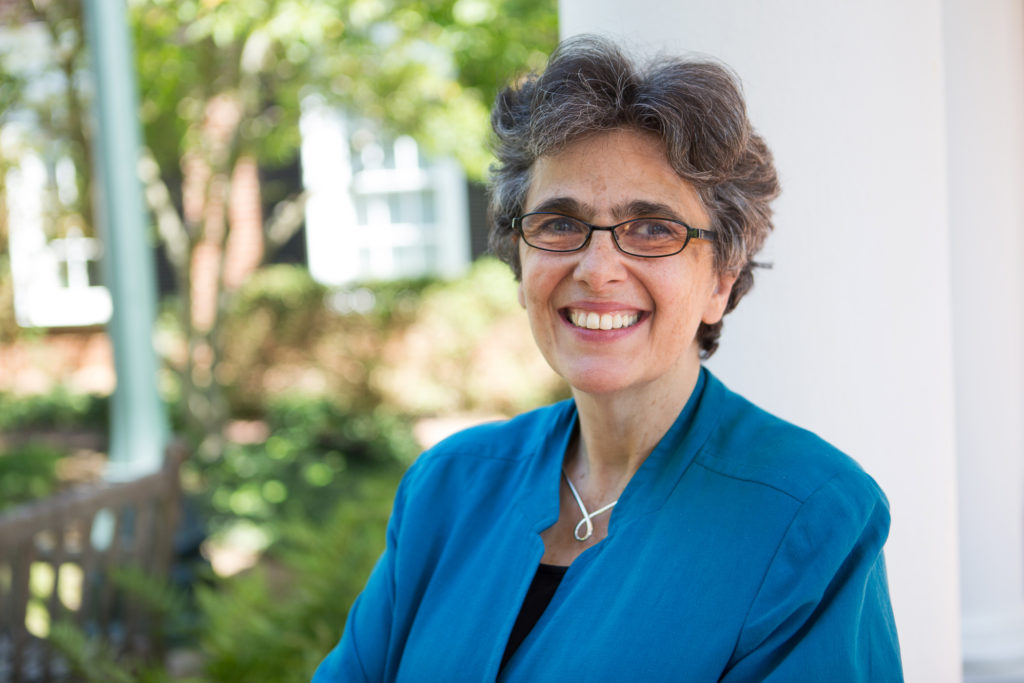
Dr. Gentile is the Director of Giving Voice to Values, launched with The Aspen Institute and Yale School of Management and hosted at Babson College for 6 years, now based at UVA-Darden. This pioneering curriculum for values-driven leadership has had over a thousand pilots globally and has been featured in Financial Times, Harvard Business Review, Stanford Social Innovation Review, McKinsey Quarterly, etc. Gentile, faculty at UVA Darden and educational consultant, was previously at Harvard Business School. She holds a B.A. from The College of William and Mary and a Ph.D. from the State University of New York-Buffalo
Expand to read the full interview with Dr. Gentile
- What is Giving Voice to Values?
Giving Voice to Values (GVV) is an innovative approach to values-driven leadership development in business education and the workplace, pioneered by Dr. Mary C. Gentile. GVV is based at the University of Virginia-Darden School of Business, having been launched by Aspen Institute as Incubator & Founding Partner, with Yale School of Management; then supported at Babson College 2009-16. Drawing on actual experience and scholarship, GVV fills a long-standing critical gap in the development of values-centered leaders.
GVV is not about persuading people to be more ethical. Rather GVV starts from the premise that most of us already want to act on our values, but that we also want to feel that we have a reasonable chance of doing so effectively and successfully. This pedagogy and curriculum are about raising those odds.
Rather than a focus on ethical analysis, the Giving Voice to Values curriculum focuses on ethical implementation and asks the question: “What if I were going to act on my values? What would I say and do? How could I be most effective?”
- Where can you find the book and the curriculum?
The curriculum is available at http://store.darden.virginia.edu/giving-voice-to-values or under the “Curriculum” tab at www.GivingVoiceToValues.org.
The book from Yale University Press is Giving Voice To Values: How To Speak Your Mind When You Know What’s Right and can be found here. A series of 6 online interactive, social cohort-based customizable modules are also available here. Additionally, a new 4-week online course on “Ethical Leadership through Giving Voice To Values” is available from Darden in partnership with Coursera at https://www.coursera.org/learn/uva-darden-giving-voice-to-values.
- We are standing in awe of the moral agency you demonstrate by creating Giving Voice to Values. What message would you like to send to our conference attendees?
Giving Voice to Values was created to help people understand that they often have more choices than they think. I want us all to feel more confident and competent about enacting their values. It is all about shifting the discussion in ethics from the cognitive realm – what is the right thing to do? – to the practical realm – when I know the right thing to do, how can I act effectively in a way that honors my values?
- This makes me think that Giving Voice to Values has much to offer to the current discussion about moral distress. Initially we looked at the external variables that create barriers to our acting on what we believe is the ethically right course of action. Now we understand that internal variables are also critical. All of us on the conference planning committee are passionate about helping nurses use the voice of their values and experience to make health care work for all, especially the most vulnerable. While health care leadership sometimes marginalizes nurses’ voices, many of us lack the courage to speak up or are unsure of how best to do this. Can you give us a hint about how you will address this?
I have some difficulty with framing these challenges as questions about moral courage. I think this leaves many of us disqualifying ourselves from the need to respond because we see the risk as too great or because we feel that we lack the courage to respond. I find it helpful to shift from the focus on moral courage to moral competence. Research tells us that we often respond to these challenges emotionally and then retrospectively rationalize our failed response or inaction. I want us to rewire that connection so that when confronted by an ethical challenge my automatic response will not be to feel limited but to immediately recognize that I have options of how best to respond, options that I have practiced, and feel confident using. I learn to act on my values routinely.
There are actually seven pillars in Giving Voice to Values and my favorite is “Self-knowledge and Alignment.” I learned listening to people tell me about their own experiences voicing values that we don’t necessarily have to be assertive risk-takers to respond to ethical challenges. People who are introspective and more risk-averse, who think of doing the right thing as “the safer route” and respond in ways that have been persuasive and successful for them in the past, can also be effective.
- Someone reading your book wrote, “Giving Voice to Values heralds a revolution in ethics education… It’s like a self-defense class for your soul.” Can you say more about this?
The more often we act on our values and do so effectively, skillfully, the more we feel whole and truly ourselves. When we fail to try, we can begin to feel alienated from our own deepest identity.
The metaphor of “self-defense” actually resonates with one of my own experiences when I was developing Giving Voice to Values. I was taking a self-defense class and after learning different defensive moves, the instructors introduced us to the concept of “specific state muscle memory.” Once we had practiced our defenses, they would bring in a gentleman in a padded suit and we would have the opportunity to practice them on him, safely, when he would attack us. The idea was that if you’ve practiced a response enough in advance, you won’t freeze in a moment of a challenge because you have developed that “muscle memory.”
Similarly, the Giving Voice to Values approach is all about developing a “moral muscle memory.” If we practice finding ways to be comfortable and skillful doing the things that mean the most to us, that accord with our highest aspirations, we will do this routinely. Then we can bring our whole identity to work with us and not feel alienated from our truest, most authentic self. The converse leads to burnout and moral distress.
- May we ask you how you measure a “good” day? Perhaps phrased differently, what gets you up in the morning ready to work again? What refuels your energy?
When someone shares an anecdote of how they have re-framed their own experience and used the Giving Voice to Values insights to more effectively act on their own values, well then I feel as if I haven’t lived in vain.
- Any last words?
I have worked with all kinds of business leaders but I have also done work with health care leaders and professionals. These interactions have been some of the most rewarding in my career. While health care professionals are appropriately concerned about their well-being, they really care about their patients. I’ve found this inspiring. The pain they feel when not able to express their values when they silence themselves, is deep. I want to help and believe Giving Voice to Values offers a different solution.
Speaker Spotlight with Kenya Beard, EdD, AGACNP, CNE, ANEF, FAAN
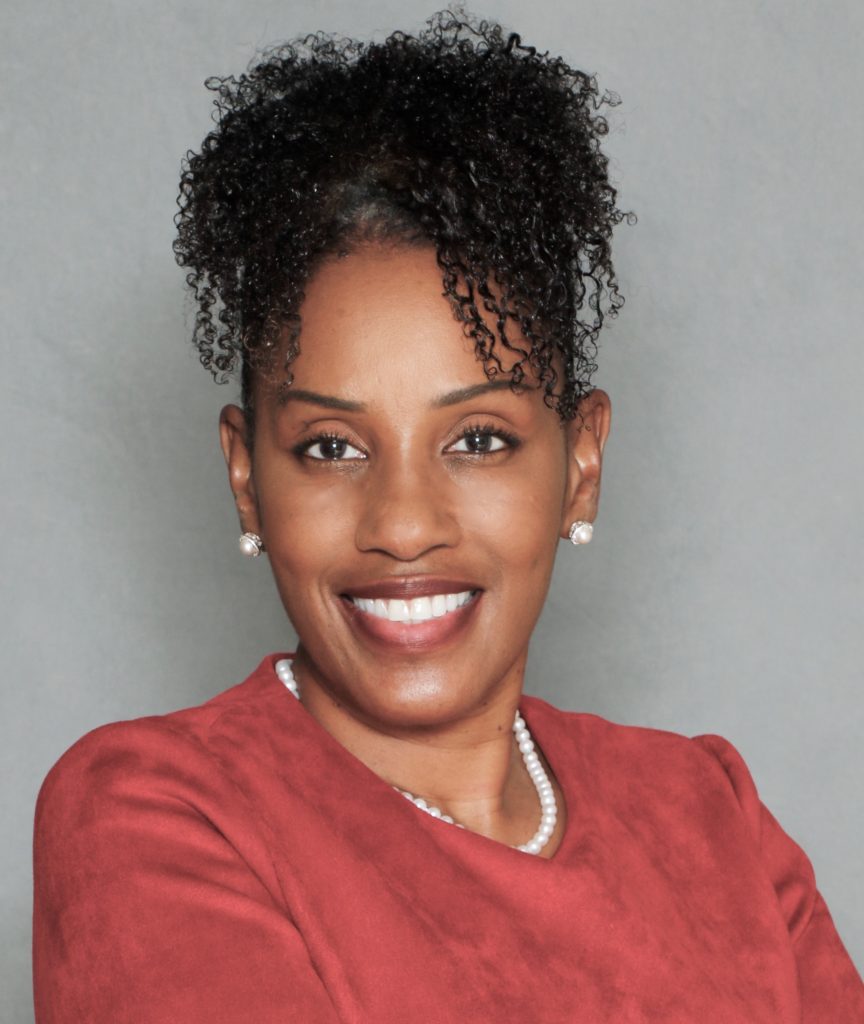
Dr. Beard is a national nurse leader and educator with over 20 years of experience helping students pass the NCLEX. Her research and publications focus on strengthening the capacity of academia to graduate a diverse workforce that’s more prepared to advance health equity.
Expand to read the full interview with Dr. Beard
1) In your presentation at FON 2030 Seattle Town Hall, you mentioned health equity is a fundamental right denied to many and we know that COVID-19 made this even more evident. What are the principal ethical considerations for nursing coming out of the pandemic?
At the societal level, the ethical consideration for nursing is to examine the extent to which we embody our professional value of JUSTICE (social justice) and use justice to inform how we respond to and mitigate health care disparities. The nursing profession must uphold nursing values and not just point-of-care values like autonomy. Our professional values dictate a commitment to justice in harmony with our dedication to autonomy, fidelity, non-maleficence, beneficence, and others. Collectively, nursing’s professional values serve as a magnet for our moral compass. Without justice, we derail efforts to provide high-quality health care. All nurses must demonstrate a commitment to our professional values in and outside of our practice, recognize injustices, and remove barriers to achieve health equity.
2) You speak of the “social mission” of nursing education. What does that mean, and what are the implications for the future of nursing practice?
Social mission in the 21st century is a construct that comes from Dr. Fitzhugh Mullan. It considers all the ways that schools, faculty, leaders, and students address healthcare disparities and advances health equity – from the mission statement, policies, and practices to one’s performance. How do we prepare students to promote justice in health care? Do we provide clinical experiences that explain upstream factors that undermine health equity and contribute to health disparities? Are we graduating students who mirror the population served? Racial and ethnic diversity can improve patient outcomes and is critical to advancing equity in health care. However, we have one foot on the gas when we seek to accelerate diversity initiatives and the other foot on the brakes when we fail to examine and reconcile the policies and practices that brought us to where we are today.
3) What are examples of structural racism in our U.S. healthcare system, and how can nurses begin to address these?
Structural racism is not unique to the healthcare system. The metastatic roots of racism connect to and feed off the education, employment, justice, and housing system, continuously operating in normalized ways. We must ask critical questions and examine outcomes to recognize and understand how racism operates. To what extent have we created a society that meets the health care needs of all individuals? Why were racial health inequities amplified during the pandemic? When resources were limited, who decided how to distribute resources? Who is harmed or benefits from current policies? Structural racism in health care deprives some groups of their ability to achieve their highest level of health and does not exist in a vacuum. We must examine how it shows up and continues to play out in the systems we inherited.
Nursing is the largest health care discipline and is well equipped to address inequities. At one time, societal factors conditioned nurse leaders to endorse discriminatory practices. As a result, minoritized groups were denied access to nursing education. As our profession advanced, so too did our professional and moral obligations. How can we learn from past experiences and use it to inform what needs to happen today? Are we calling out inequities and creating “safe spaces” for critical questions? We must find our collective voice, shaped by professional values, to bring about needed change. Nurses are better positioned to address structural racism when we demonstrate our professional values and ethics.
4) What are some highlights of your nursing career that you are most proud of?
I have had numerous opportunities to empower patients and students to use their voices to reconcile inequities. A highlight of my career is creating safe spaces for students, faculty, and others. I welcome respectful disagreement that reflects humility and emotional intelligence. I am most proud of supporting diversity, equity, and inclusion initiatives and creating an ethos that allows discourse to address and remedy health care inequities.
5) Is there anything else you would like to share?
Nursing is a complex and humbling profession. Every day we must work to align our actions with our professional values. I look forward to the conference, hearing new ideas, and co-creating ways to advance not only the profession but the health of our nation.
Elizabeth Epstein, PhD, RN, HEC-C, FAAN, & Linda Olson, PhD, RN, NEA-BC, FAAN
Dr. Beth Epstein, a nurse ethicist, and Dr. Linda Olson, a nurse educator, and consultant with expertise in ethics are internationally recognized for their work on tools to measure moral distress and hospital ethical climate. On Friday, March 18th they will present the plenary entitled “Where You Work Determines How You Work: Ethical Climate and its Influence on Healthcare Provider Life and Practice.”
Expand to read the full interview with Dr. Epstein & Dr. Olson
The theme of this year’s National Nursing Ethics Conference is Moral Agents in Action. In what ways does this theme resonate with you?
Dr. Olson: As moral agents, nurses are advocates for their patients, and are aware of and identify issues that are difficult in practice. They usually know what is right or best for patients and their families and colleagues. The first step is to help them increase their awareness of what constitutes an ethical issue. The conference provides opportunities for self-reflection which is important for nurses’ ability to demonstrate empathy and maintain integrity.
Dr. Epstein: One concern is that nurses’ voices aren’t always heard or taken seriously. How can you be a moral agent if you are silenced? Nurses can’t fulfill the role if what they are saying isn’t taken seriously. We must have the confidence to say, “I have a seat at the table.” This presentation will put together ways for nurses to recognize their own voice and take a stand on things they feel morally obligated to do.
Your session will consider concepts of mattering, moral distress, burnout, and the linkages of those with ethical climate. What part of this content are you most excited about sharing with participants who may struggle with feeling like they can exert moral agency in their work environments?
Dr. Epstein: As clinicians, we want meaningful work and it’s easy to say that what we do has meaning. But many people tell me they feel like they are an ‘oxygen exchange unit’ and can be replaced easily and they don’t matter to their peers. For many, the impression of how much you matter comes from your organization, whether it takes you seriously, sees you as an expert clinician, invites you to the table, and listens when you speak. Then you feel like you are embedded into the moral community and you matter. Then you will be invested in that organization and practice at your best professional capacity.
Dr. Olson: Nurses want to feel they are listened to and their opinions are valued. Leaders have a role in creating and maintaining an ethical practice environment, where clinical nurses can raise issues and give their views without fear of reprisals. Those involved in ethical issues need to feel free to speak out and to be aware of resources available to help them. Clinical nurses need to be encouraged to raise an issue and be heard. The ability to express your opinion is an element of risk-taking. Nurses have to feel supported in taking a risk—that in turn generates trust in the system and in each other.
We know from the Code of Ethics that nurses carry responsibility for the development of an ethical work environment. That seems like a big job, how does ethical climate relate to individual nurses?
Dr. Olson: As a nursing professor, I spent time in different hospitals with students, and observed that nurses were more or less willing to voice their concerns. It seemed related to work culture. That led to realizing that the context of the workplace environment influences the way we identify and respond to ethical issues, and to my research on organizational culture, climate, and ethics. I am convinced that creating healthy work environments is key to quality patient care outcomes and good nurse outcomes with regard to nurse satisfaction and retention.
Dr. Epstein: The ways we interact with each other set a tone for the climate. There are things you can do locally on your unit: debriefings after deaths, celebrations of successes, community building, and bringing people together. Even the language we use makes a difference, like how you ask a physician when you are concerned about a patient— “Help me understand” or “Help me get on the same page.” What is the nurse’s responsibility in terms of creating professionalism so we can all learn from these things? Questions should come up and should be welcomed. A nurse saying “I’m afraid I’m not seeing what you’re seeing” should be viewed as valuable and clinicians should say “help me see what you are seeing”
How would you advise nurses who have an interest in ethics?
Dr. Epstein: I would say to nurses who have an interest in ethics, “Your role is more important than you may see it.” When nurses participate in solving ethical issues, it helps them feel like they have made a difference, that they have practiced to their full potential. Clinical technical expertise is one thing, but ethical problems can be real ‘zingers’ for people. I would constantly encourage nurses and nursing students to not back away from the discussion table when those issues come up. If you have something to say, you need to bring it up, don’t go home with regret.
Dr. Olson: It is so important to help nurses and others develop an understanding of how the workplace environment and leadership influence their ethical practice. Nurses need to identify areas they can focus on in order to improve it. Nurses can take a look at the organizational culture where they may apply to work in or are already working in to see whether the elements that constitute a good organizational culture and climate are in place. A component of a positive ethical climate is the ability to express opinions and talk with each other about concerns. It is also in the way they are supported and recognized and valued for their practice. I would advise nurses to take advantage of opportunities to learn about ethics and to be involved in activities where difficult and ethical issues are discussed, to be aware of their values, and to use the ANA Code of Ethics as a valuable resource.
Speaker Spotlight with Elizabeth Peter, RN, Ph.D.
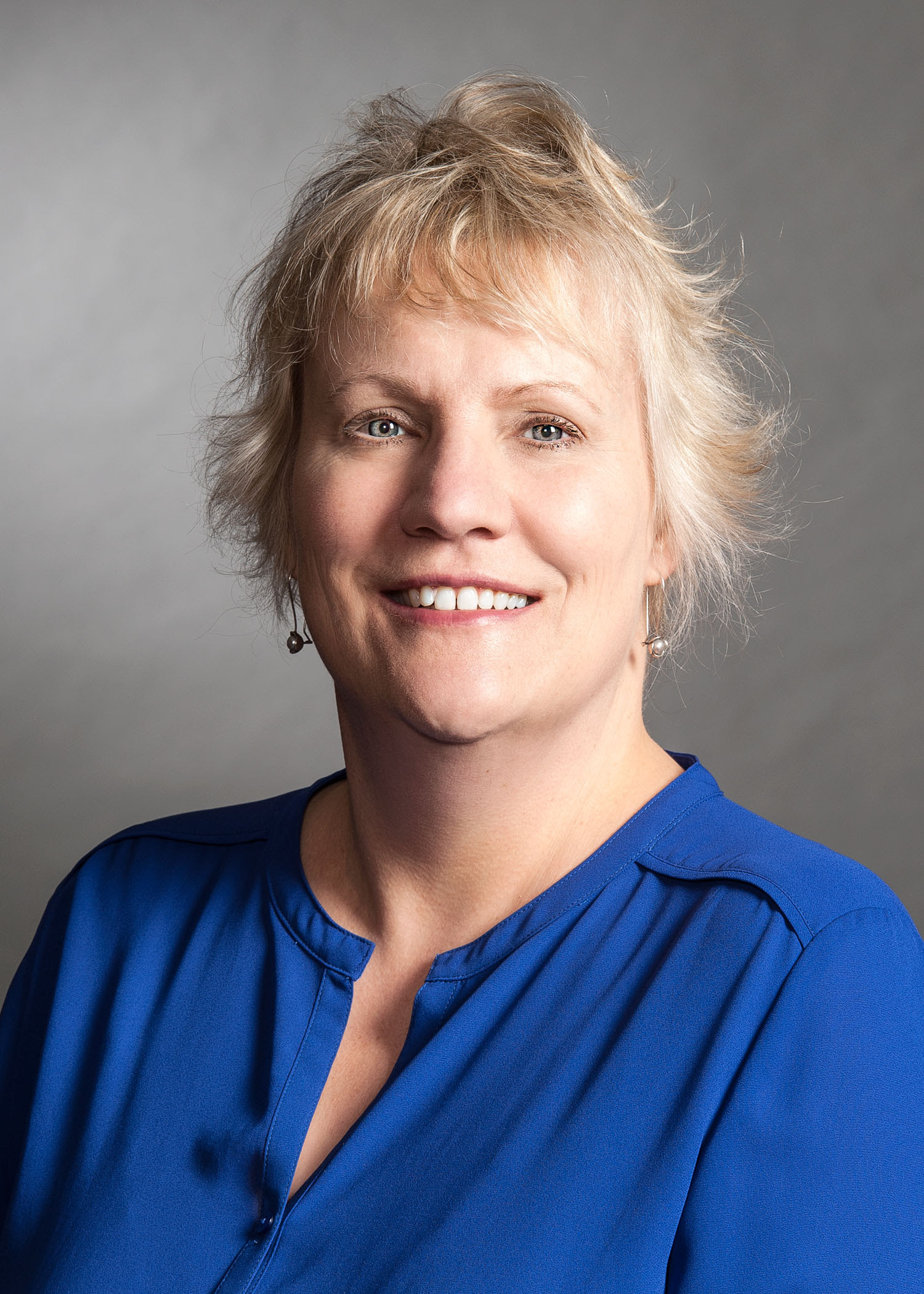
Elizabeth Peter joins our conference this year bringing to us her perspective on Nurse’s Moral Agency. Her academic studies of nursing, philosophy, and bioethics afford a unique lens in which to view the development of ethical competence, cultivate ethical cultures, and appreciate the complexity of being moral agents and acting in more well-informed and virtuous ways.
Over the years Dr. Peter has looked at nurses’ moral agency within the framework of the hospitals and institutions in which they work. Looking at not only what constrains the development of the moral agency, but also on actions nurses can take that builds that agency. Dr. Peters identifies her research as “focusing on examining the political dimensions of nurses’ ethical concerns and understandings.”
Expand to read the full interview with Dr. Peter
Katherine DuBois, a longtime member of the NNEC planning committee recently had the opportunity to ask Dr. Peter her thoughts.
1. You have been looking at nursing relationships and how professional trust is developed for many years. What shifts have you seen in nursing that you feel have helped and changes you have seen that have hindered nurses’ ability to establish and maintain trust in healthcare relationships?
Over the years, the complexity of relationships of professional trust has become more apparent to me as healthcare systems grow and change. One thing that has helped maintain the trust in nurse-patients relationships is the enduring commitment that nurses have to patients and their families. I am struck by the students that I encounter that they remain deeply concerned with not only their patients’ diseases but also their illness experiences. In fact, I notice a growing interest in issues of social justice as nurses work with patients in hospitals and communities and make great efforts to support people in their efforts to access the social determinants of health.
On the other hand, cutbacks and pressures to make health systems more efficient have led to the distrust nurses have in healthcare systems. It also sometimes has led to nurses having little time to develop the kind of relationships they would like to have with patients/clients leading to an erosion of trust. I have also noticed that families sometimes place a great deal of pressure on nurses to support aggressive treatment at the end-of-life as expectations in the power of medicine to sustain life have increased. At times, this kind of pressure also has eroded the trust among nurses and families.
2. What do you see happening that gives you hope that the professional nurse will be successful in maintaining their caring practice, especially those taking direct care of patients?
The fundamentals of the care movement gives me hope in that it makes visible and valuable the importance of care practices that sometimes are unjustifiably considered menial. Direct care is at the heart and soul of nursing and without it, we lose nursing as a profession and as a discipline. Over the past two years, I have had a number of close family members in need of care as a result of illness and disability. The aging of many societies may drive the significance of nursing to the awareness of the public. Humans do not survive without care whether it be at the hands of family and friends or professionals.
3. In the current healthcare environment what transformations do you see that nurses can capitalize on that will strengthen their professional and moral identity?
In the current healthcare environment, there are more nurses than ever before in positions of leadership and influence. Those in these roles, when they are good role models, can strengthen the professional and moral identity of nurses. More opportunities exist for nurses to develop their leadership capabilities through professional organizations and educational opportunities, making it more possible to find ways to capitalize on these changes.




